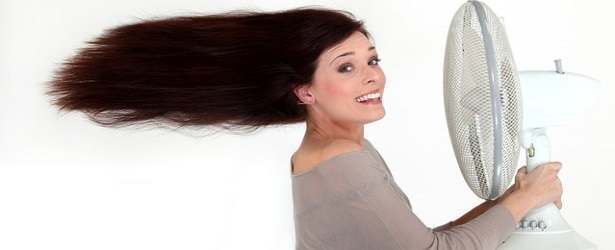
The Transition into Menopause
 Perimenopause is sometimes called menopause transition. It is the stage in a woman’s reproductive life that starts years before the complete onset of menopause, when the ovaries gradually produce less estrogen. Perimenopause normally begins in the 40s, but there are women who begin this phase as early as their 30s.
Perimenopause is sometimes called menopause transition. It is the stage in a woman’s reproductive life that starts years before the complete onset of menopause, when the ovaries gradually produce less estrogen. Perimenopause normally begins in the 40s, but there are women who begin this phase as early as their 30s.
Perimenopause lasts until the ovaries have fully stopped releasing eggs — which is when actual menopause starts. In the final few years of the perimenopausal stage, the drop in estrogen increases. This is what causes the symptoms of menopause. Ordinarily perimenopause lasts around four years, but some women may only experience it for months, while for others it may last as long as ten years.
Every woman is unique. After you have gone for twelve months without a menstrual cycle then perimenopause is complete, and you have reached full menopause.
Symptoms of Perimenopause
Common symptoms of perimenopause include:
- Hot flashes
- Irregular periods

- Tenderness of the breasts
- Lower sex drive
- Mood swings
- Fatigue
- Vaginal Dryness
- Difficulty Sleeping
- Having to urinate more frequently
- Leaking urine when sneezing or coughing
While it is normal to have irregular periods during perimenopause, there can be a number of other medical issues that can also cause irregular periods. See your doctor if your periods become heavier or last longer than usual, if you are spotting between periods, if you are spotting after sex, or if your periods are happening more frequently. Make sure that there are no other underlying medical conditions that could be causing these symptoms.
Be cautious about sex during this phase, because it’s still possible to get pregnant even while undergoing perimenopause. Continue using protection until you have hit full menopause (not having a menstrual cycle for one full year).
Ask your physician about all the options available to you to treat your perimenopause symptoms. These options include pharmaceutical medications as well as natural treatments. These all can help keep symptoms at bay or, at the very least, reduce their severity and frequency.
For instance, your doctor may prescribe low dose oral contraceptives to regulate your periods and help reduce the hot flashes and night sweats . But you should also ask your doctor about other, more natural ways to lessen the symptoms of perimenopause. You can try many simple tactics like exercising more, eating a healthier diet, and taking vitamin supplements. Before you begin any treatment, however, check with your doctor to make sure you are choosing the right treatment option for you.
TOP 5
MENOPAUSETreatments |
|||||
| MenoClear | Menozac | Avlimil | Promensil | Balance Point | |
|---|---|---|---|---|---|
| 1 | 2 | 3 | 4 | 5 | |
| Price (1 bottle) Price (6 bottles) Best Value |
$49.95 $135.70 |
$49.95 $299.95 |
$29.95 $149.00 |
$35.95 $215.70 |
$39.95 $239.70 |
| Overall Rating | 99.60% | 88.20% | 80.90% | 77.80% | 69.10% |
| Effectiveness |





|





|





|





|





|
| Speed of Results | Extremely Fast | Good | Average | Average | Slow |
| Quality of Ingredients | Premium | Good | Good | Average | Average |
| Customer Satisfaction Evaluation | 99.00% | 86% | 80% | 75% | 66% |
| Safety Evaluation | Safe for Use | Safe for Use | Safe for Use | Safe for Use | Safe for Use |
| Customer Service Rating |





|





|





|





|





|
| Reorder Rate | Highest | Good | Good | Average | Average |
| Return Policy | Risk Free | Unused + Restocking Fee | Risk Free | No | Risk Free |
| Success Rate | 99% | 85.20% | 78% | 74% | 67% |

 Subscribe Now
Subscribe Now











